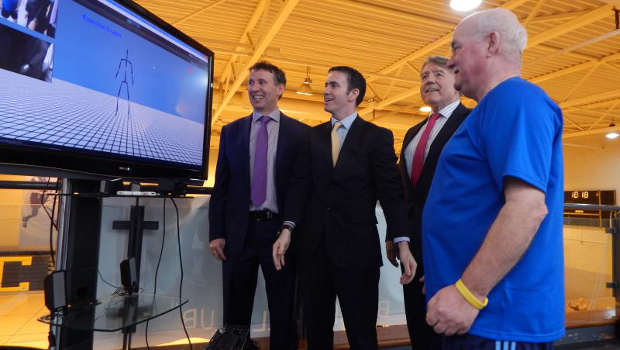An Irish-led team of researchers is working on ways of using technology to improve these numbers. The group is led by Dr Kieran Moran of Ireland’s Insight Centre for Data Analytics at DCU.
Exercise reduces the likelihood of patients dying prematurely from a cardiac event by 25%. However research has found that despite suffering a cardian event, only 10% of patients participate in a cardiac rehabilitation programme after leaving hospital.
“While patients tend to be aware of the benefits of exercise there are a number of barriers for people who want to exercise after a cardiac event,” said Dr Moran. “They not only have the usual barriers such as time constraints and ‘exercising takes effort’, that we all have, they also cannot find classes relevant to them. They want to exercise with others recovering from the same condition and often feel that they won’t be able to do the exercises. The use e-health and other technological solutions may offer an alternative.”
The team, in collaboration with 10 university, industrial and hospital partners developed Pathway, an Internet- and sensor-driven exercise cardiac rehabilitation system for the home.
Pathway allows patients to exercise with an instructor avatar from the comfort of their own home. The system also allows them to link with other users, so that they can exercise together and talk to each other.
The system monitors a user’s heart rate and can instruct them to slow down or speed up depending on what is needed. The virtual community element also acts as a way for care givers to monitor compliance and progress.
Record progress
In other medtech news, Clanwilliam Health and the HSE have joined in an effort to GP offices of of dot matrix printers.
GPs still rely on the 30-year-old technology for General Medical Services Scheme (GMS) prescriptions but under the new plan prescriptions would be processed by matching a hardcopy written out by the doctor with an electronic copy held at the pharmacy via a barcode.
Richard Corbridge, CIO, HSE and CEO of eHealth Ireland, said: “The vast majority of GP surgeries in Ireland have two or more printers for prescriptions – a laser printer for private prescriptions and dot matrix printers for GMS prescriptions. Aside from being large and noisy, dot matrix printers are costly to maintain and verging on obsolete making it difficult for them to be supported.
“The vision of eHealth Ireland goes beyond simply removing the dot matrix printers. E-prescribing is something which has been delivered in many countries around the world and we believe that the clinicians and patients of Ireland stand to benefit from its implementation.”
Eileen Byrne, managing director, Clanwilliam Health, said: “There is a recognition among Ireland’s GP and pharmacy communities that the current old dot matrix printer technology is incredibly outdated. Patients and health professionals stand to benefit from a modernised system, where the paper prescription can be validated against an electronic record pulled down at the point of dispensing.”
This initiative is is expected to be completed by the end of 2017.
TechCentral Reporters








Subscribers 0
Fans 0
Followers 0
Followers